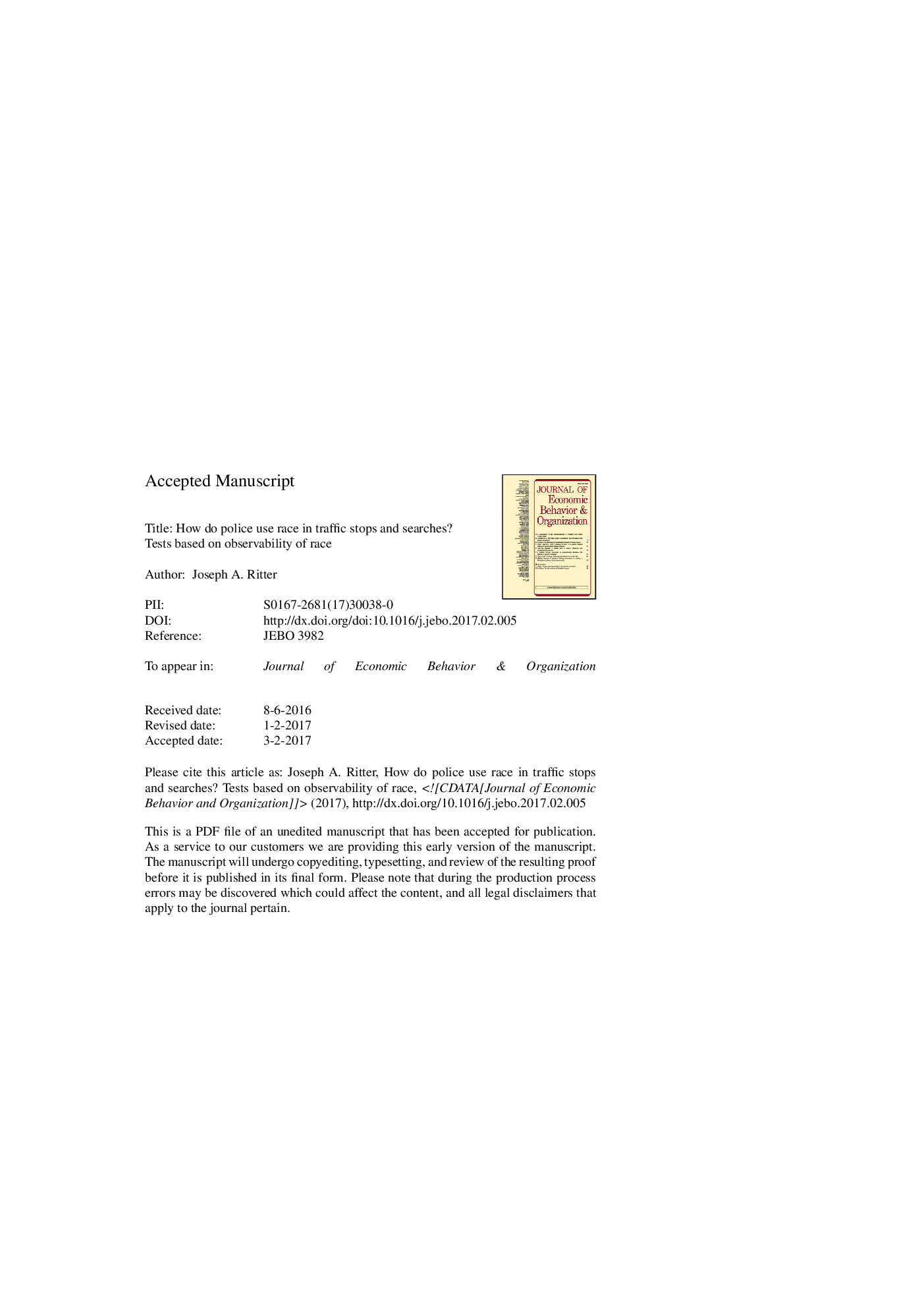| Article ID | Journal | Published Year | Pages | File Type |
|---|---|---|---|---|
| 5034585 | Journal of Economic Behavior & Organization | 2017 | 46 Pages |
Abstract
When a police officer decides whether to initiate a traffic stop, the driver's race is less likely to be known during darkness, but always observed after the stop takes place. If officers use information optimally, this flow of information about race leads to specific empirical predictions, which are tested using data on traffic stops in Minneapolis. The prediction about stops is supported, but those concerning searches are not. This pattern of results implies that police choices were inconsistent, which is evidence against both statistical discrimination and optimizing with a taste for discrimination. The results may reflect cognitive biases present in the time-sensitive decision to initiate a stop.
Related Topics
Social Sciences and Humanities
Economics, Econometrics and Finance
Economics and Econometrics
Authors
Joseph A. Ritter,
